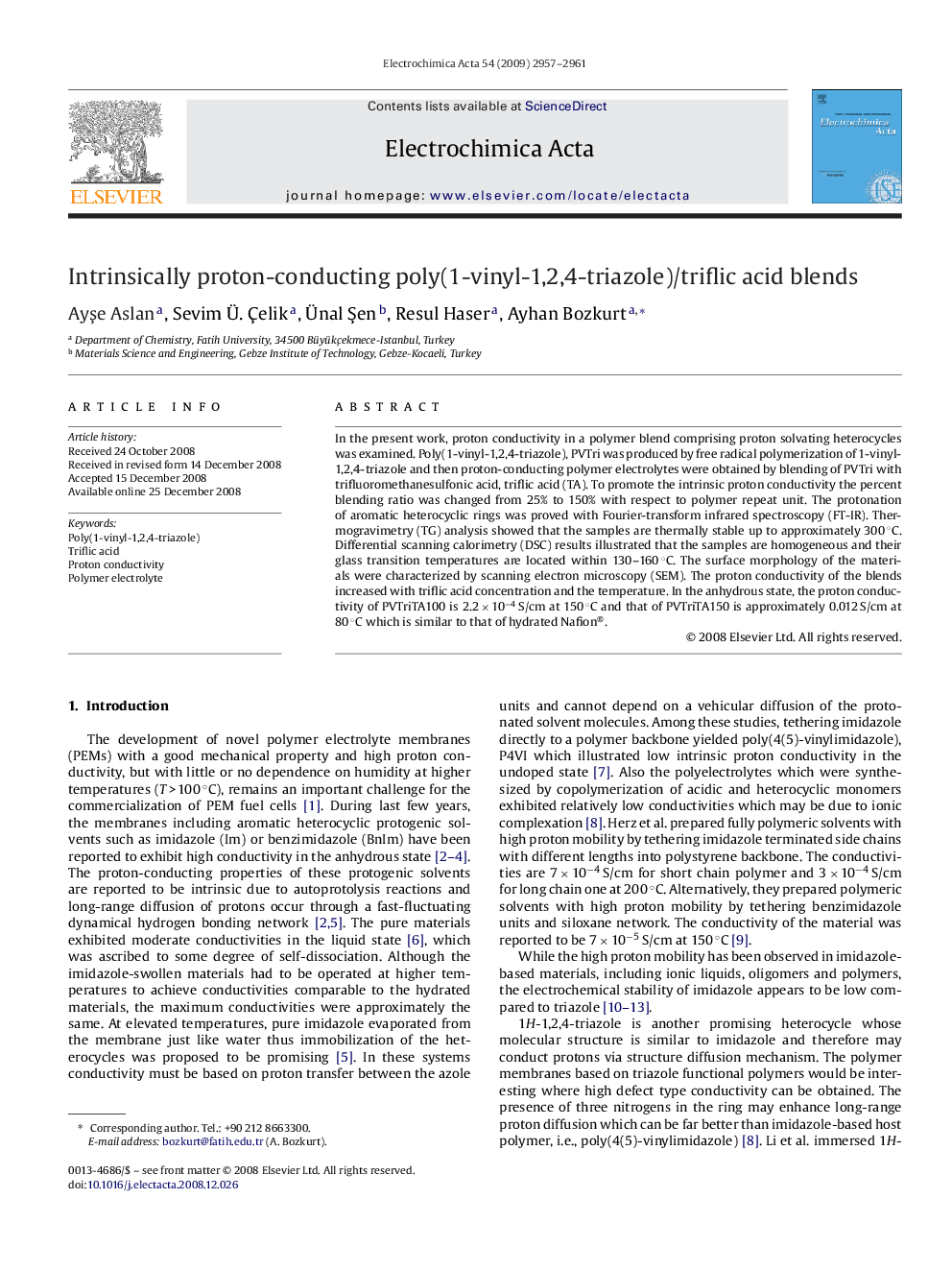| Article ID | Journal | Published Year | Pages | File Type |
|---|---|---|---|---|
| 193271 | Electrochimica Acta | 2009 | 5 Pages |
In the present work, proton conductivity in a polymer blend comprising proton solvating heterocycles was examined. Poly(1-vinyl-1,2,4-triazole), PVTri was produced by free radical polymerization of 1-vinyl-1,2,4-triazole and then proton-conducting polymer electrolytes were obtained by blending of PVTri with trifluoromethanesulfonic acid, triflic acid (TA). To promote the intrinsic proton conductivity the percent blending ratio was changed from 25% to 150% with respect to polymer repeat unit. The protonation of aromatic heterocyclic rings was proved with Fourier-transform infrared spectroscopy (FT-IR). Thermogravimetry (TG) analysis showed that the samples are thermally stable up to approximately 300 °C. Differential scanning calorimetry (DSC) results illustrated that the samples are homogeneous and their glass transition temperatures are located within 130–160 °C. The surface morphology of the materials were characterized by scanning electron microscopy (SEM). The proton conductivity of the blends increased with triflic acid concentration and the temperature. In the anhydrous state, the proton conductivity of PVTriTA100 is 2.2 × 10−4 S/cm at 150 °C and that of PVTriTA150 is approximately 0.012 S/cm at 80 °C which is similar to that of hydrated Nafion®.
